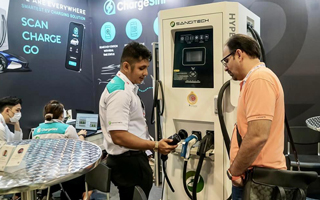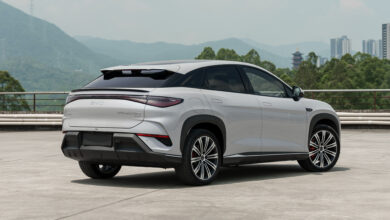Motoring’s future is in EVs – will doubters ever wake up?

[ad_1]
I attended the EVM Asia ’23 electric vehicles conference and expo in Kuala Lumpur last week to check out the show and listen to the speakers.
Afterwards, on the sidelines of the lunch buffet, I shared with some friends the notes I’d taken having seen the new electric vehicle charge point operation shown off by a major energy player at the show.
I noted that companies like this would be on more fertile ground advocating EVs at traditional motor shows where combustion engines dominate, rather than at environment-focussed conferences where they were preaching to the converted.
The response I got from others in the energy sector surprised me, however, logical they were.
“We’ll be like missionaries surrounded by disbelievers in a strange land. We’ll have to go in armour with swords and shields if we participate in those traditional motor shows,” one of them remarked, and we all had a good laugh at her vivid imagery.
This exchange reminded me of a friend named Kathy, a sales executive with a premium German brand who’s a passionate advocate of EVs.
Kathy and I are members of an 80-strong automobility WhatsApp group but have never met. While most of the postings in the group relate to benign transport issues, those about EVs are lightning rods that attract comments by disbelievers that Kathy stoutly rises to oppose.
While some critics brandish honorifics and academic titles, Kathy comes armed with a large-language model that lets her respond articulately, comprehensively and in a scholarly fashion.
It’s a microcosm of the EV debate in many ways. Every stakeholder has their own point of view, not unlike the three blind men touching an elephant – one holding the tail, one the trunk and another the tusk – but none in agreement about what they’re touching.
For all the complaints about the pollution caused by mining lithium for electric batteries, there’s also the obvious environmental impact of fossil fuels.
And to those who talk about EVs potentially catching fire, the statistical probability of an EV going alight is still lower compared to internal combustion engine cars.
Batteries tend to have multiple safety measures like thermal management systems, protective enclosures and built-in fire suppression systems, while traditional cars still carry highly flammable liquid around with them that need to be ignited for energy.
Additionally, EV manufacturers conduct rigorous testing and adhere to strict safety regulations to minimise the possibility of fires. Features like battery monitoring, rapid shutdown systems and crash protection mechanisms further enhance the safety of EVs.
I think the naysayers are a small minority. Most of these doubters are actually people who just want to learn more and prepare for the day when they need to get an electric car. These are the people who will upgrade to an EV when there’s better price parity with combustion cars.
When all persuasion fails, we should go back to basics.
An electric vehicle is measurably more efficient than a combustion car because the motor converts 80% of the battery’s potential energy into motion. The mathematics of a combustion engine is the reverse: 80% of the energy stored in diesel or petrol is wasted as heat when burned, with just 20% converted into movement.
That said, it’s probably good that EV sales don’t skyrocket right away because green electricity generation still needs time to scale. Especially for as long as buying an EV leaves a larger carbon footprint once all factors are considered, like the manufacturing process and maintenance.
And for energy companies who are thinking about exhibiting their EV charging point operations at petrolhead motor expos where there are a lot of traditionalists to convert, they need to arm themselves with deep knowledge and easy to understand informational materials like infographics. Promoters can even be armed with apps like ChatGPT so they can answer questions from doubters knowledgeably and persuasively.
No need for quarrelling.

A charging station display at the EVM Asia 2023 expo held in Kuala Lumpur from Jan 19-21. (Facebook pic)
The writer can be contacted at [email protected]
The views expressed are those of the writer and do not necessarily reflect those of FMT.






